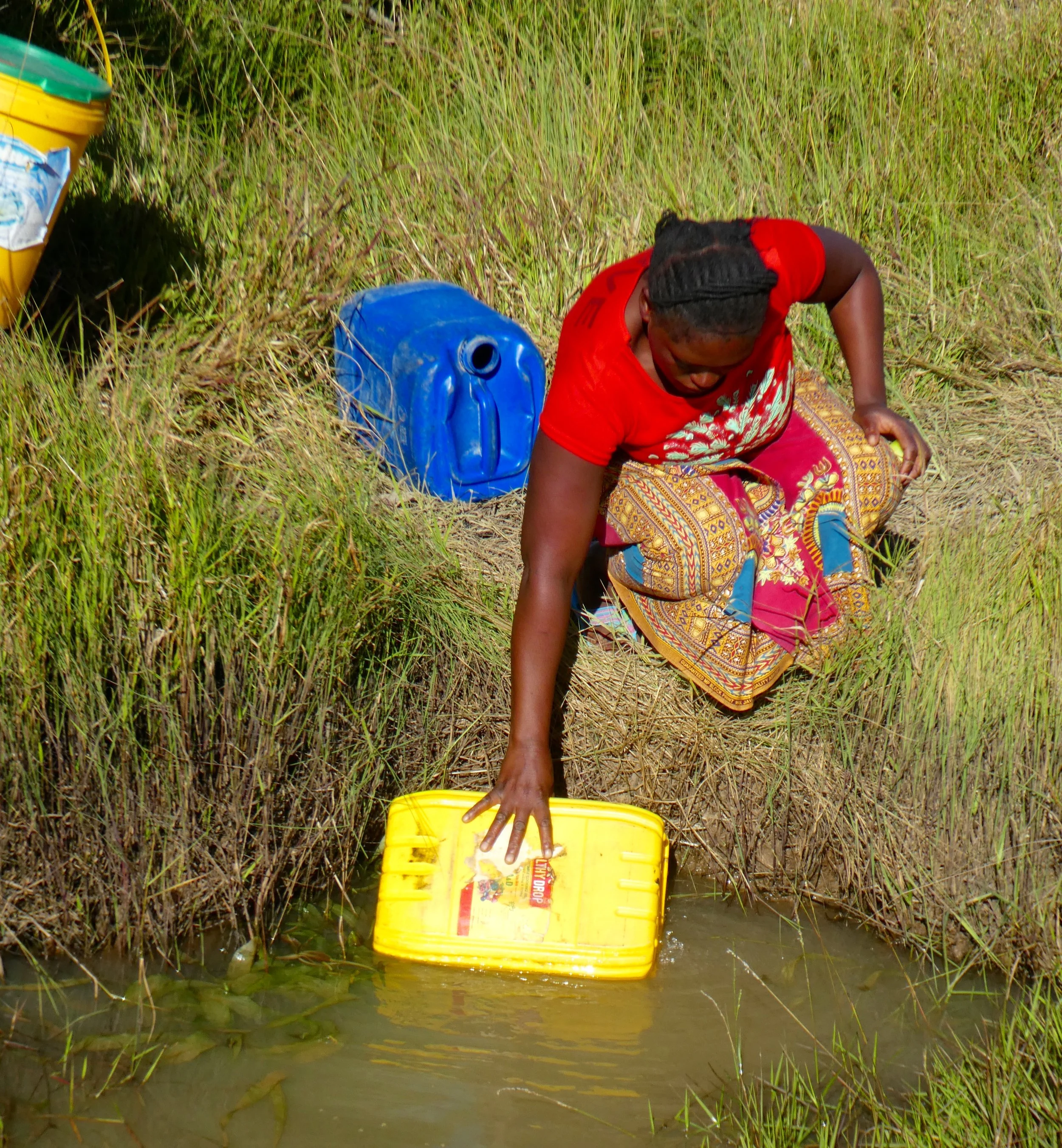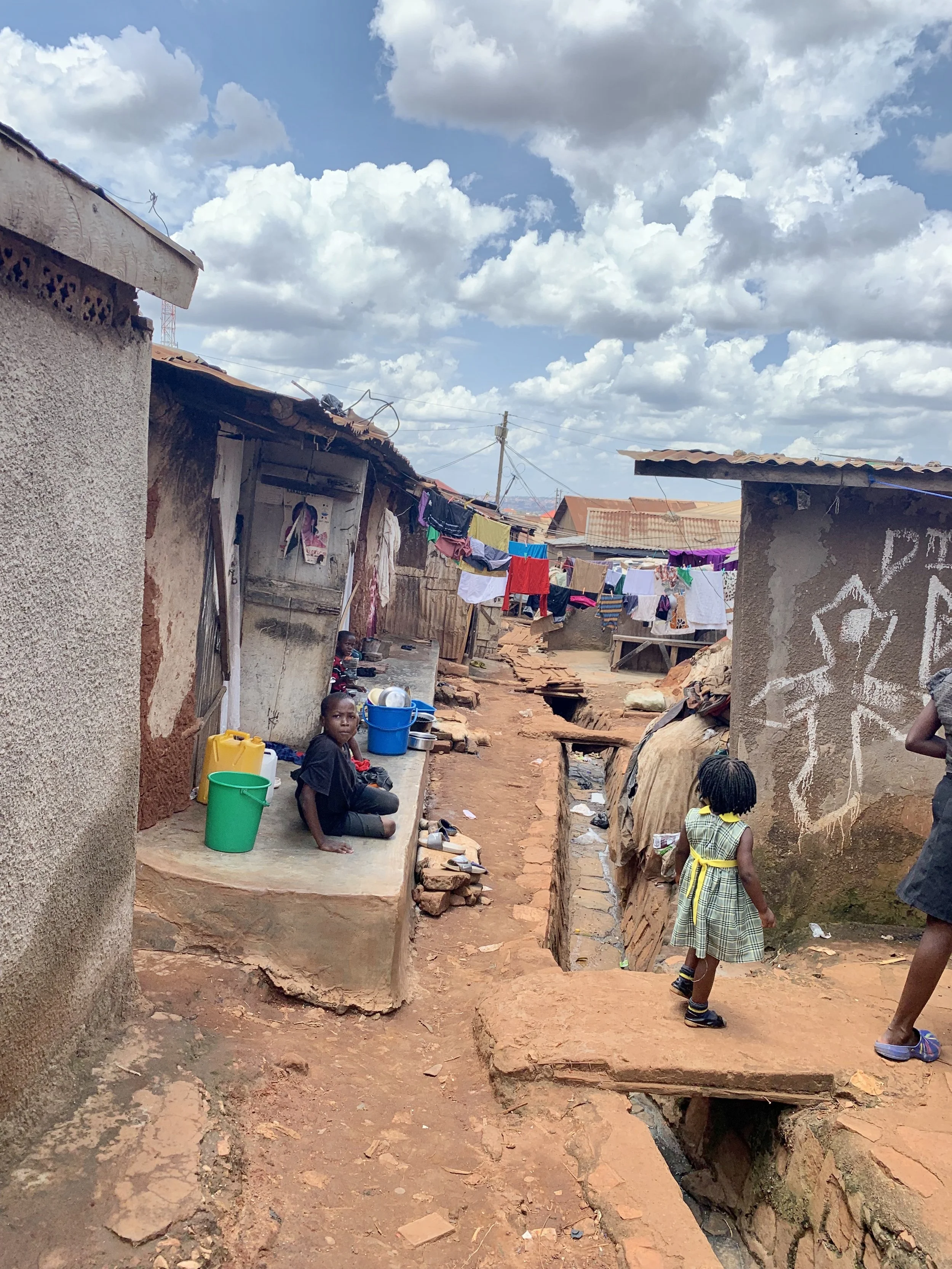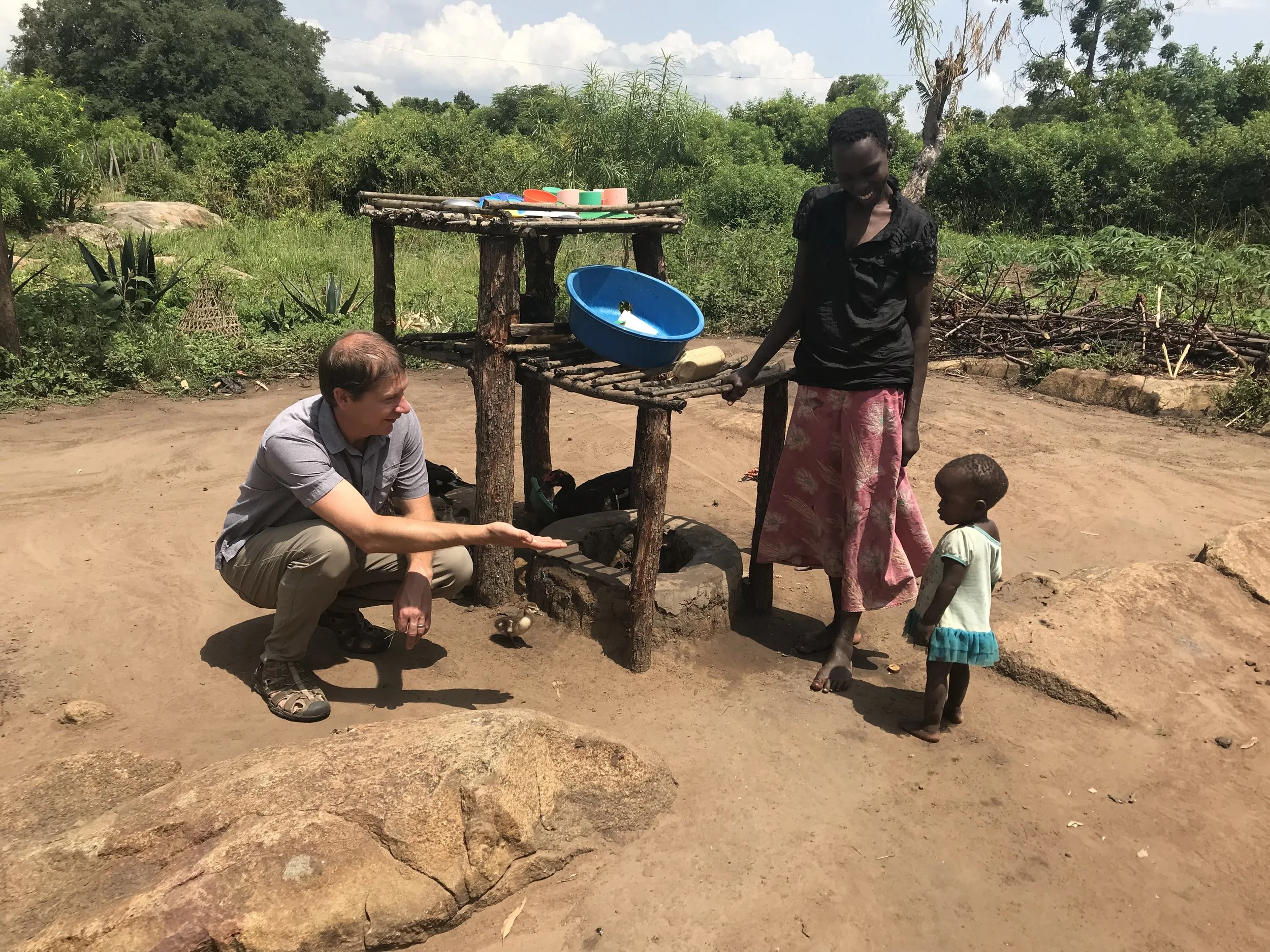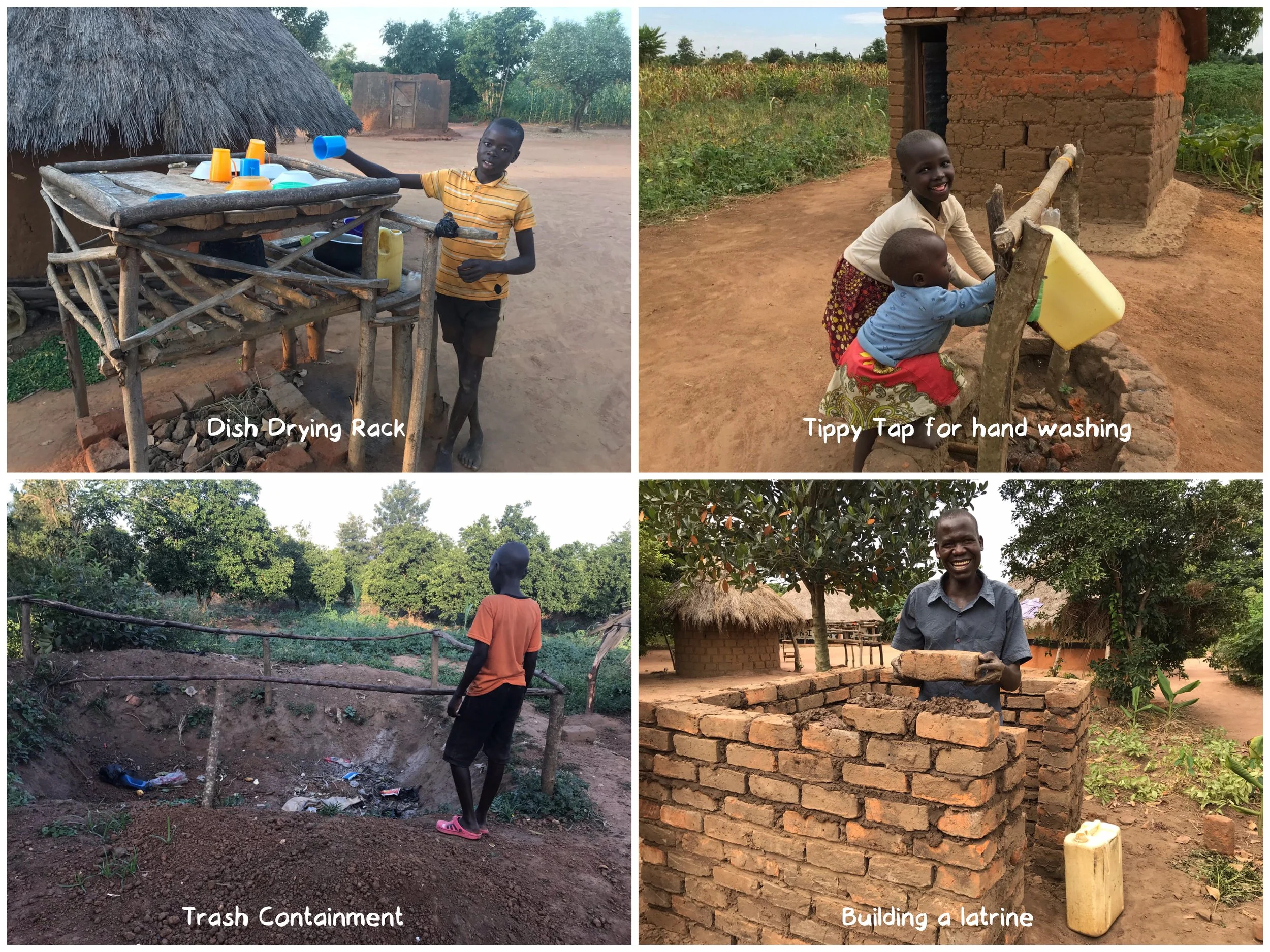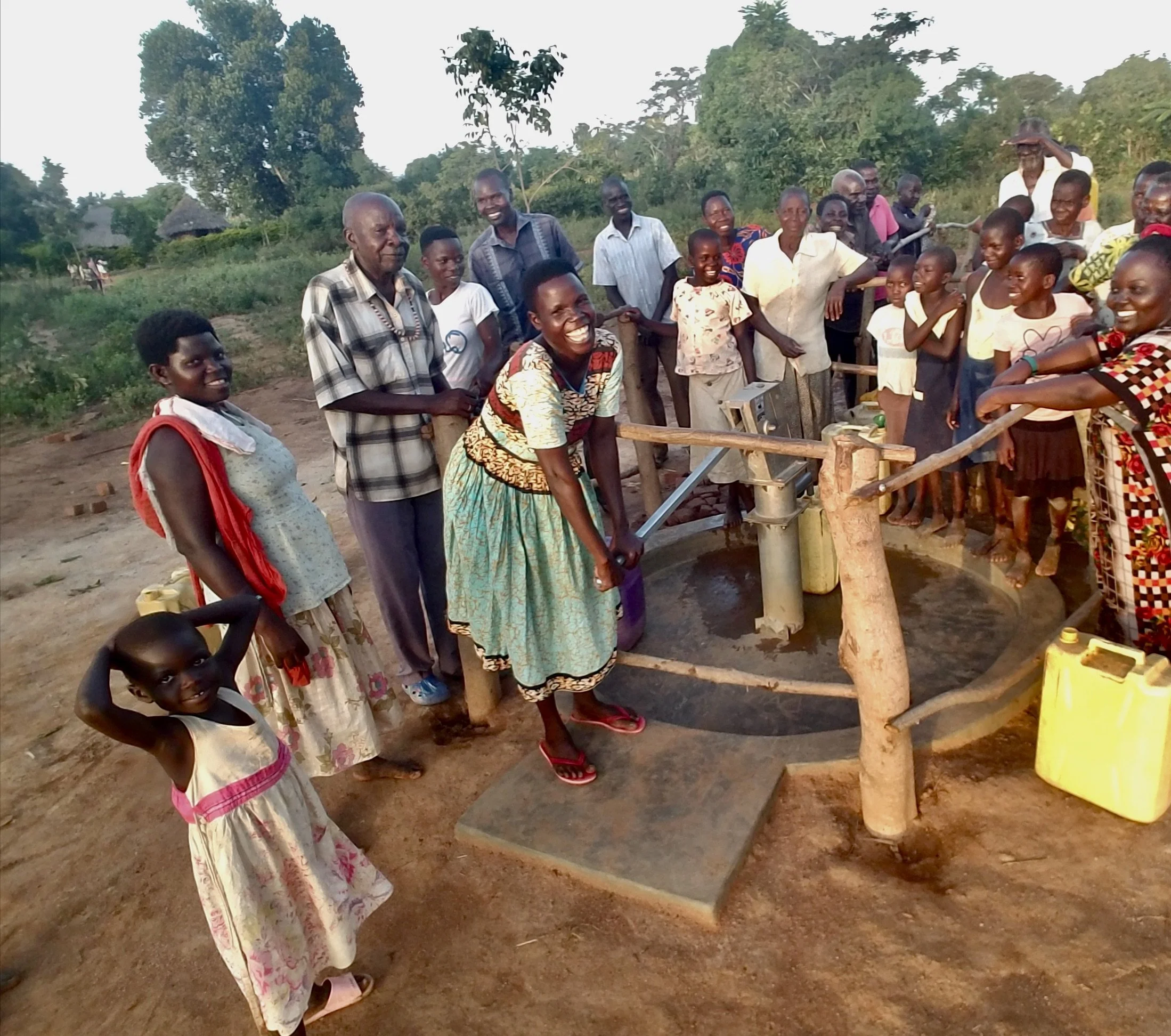Why water?
Because
Every.1 Needs Clean Water
Water sources are contaminated with bacteria and are often also used by animals.
Water. We use it every day, all day. We brush our teeth, take a shower, use the toilet, make some coffee and oatmeal, fill our water bottles . Without stopping to think about it, we have used gallons of water, and the day has just begun.
This is not so in much of the world. 703 million people globally lack access to a clean water source and basic sanitation. Many of these people live in Sub-Saharan Africa. Every year, women and children, most often girls, spend approximately 40 billion hours walking to and from the nearest water source, collecting water to use for cooking, washing, and drinking. The water sources are often contaminated and also used by animals.
Without safe water sources, people in villages can not experience good health. The water that is vital to their existence causes serious illness and even death.
Without easily accessible water, food can’t be grown, and livestock can’t be maintained. Lack of water and hunger go hand in hand.
Without safe water close by, girls can’t go to school because they are walking miles to help provide water for their families. Many children become to ill to attend school. Every two minutes, a child dies from a preventable waterborne illness.
Without clean water, hygiene and sanitation cannot be maintained.
A drying rack helps keep clean dishes off of the ground and away from animals.
Clean water and training in sanitation and hygiene changes lives in African communities profoundly.
Improved health enables more adults to be able to work, and more children to be able to attend school.
There is more opportunity for women to earn money and girls to attend school when they don’t have to spend most of their time walking for water.
Agriculture improves and expands with a nearby source of clean water.
Building structures such as schools, hospitals, and homes is made possible by a local water source.
Clean Water Requires Commitment
It takes approximately a year for a community to qualify for a Clean Water Project.
The community commits to learning healthy sanitation and hygiene practices.
Latrines must be dug.
Trash containment areas must be built.
Good handwashing practices must be established.
Drying racks must be built to keep clean cooking equipment off of the ground, away from animals and other contaminants.
When all of these requirements have been met, the process of drilling a borehole can begin!
How Can you help?
Educate yourself about water conservation locally.
Educate yourself about the need for clean water sources and training in sanitation and hygiene globally. Share what you learn with your friends and family!
Participate in the Walk4Water, BTG’s yearly community event to raise funds and awareness for clean water projects.
Donate to Bridging the Gap4Water by clicking the blue Donate button at the top of this page.
$25 will provide a pump repair kit
$60 will provide one person with clean water for life
$100 will provide a family or school with a TivaWater filter, which will provide them with clean water for up to 10 years.
$10,000 is the average cost of digging a borehole for a village.
Any donation you make will make a difference!
A borehole brings clean water, better health, and hope into a community.

